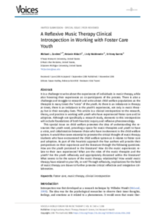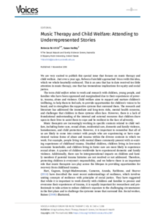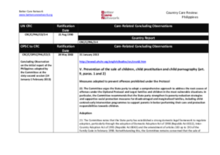Displaying 181 - 190 of 510
This anecdotal story features professional and personal reflections and vignettes on the music therapy journey with a very withdrawn and isolated young boy at a place of safety in Cape Town, South Africa.
Despite a growing interest in music therapy within child welfare practice, music therapy practices within these contexts are still under-researched in Norway. The present study takes a collaborative community music therapy practice as its point of departure.
The present study analyzes differences between perceived social support from family, peers, and adult mentors in Unaccompanied refugee minors (URM), with subgroup analyses of peer and mentor support in URM with and without family contact.
This study tested the hypotheses that inverse relationships would exist between connectedness in three social domains (i.e., caregiver, peers, and school) and suicidal ideation over time.
To illustrate design and implementation of the Strategies for Enhancing Early Developmental Success (SEEDS) Preschool Program, aimed at promoting school readiness in families connected to the child welfare system, the current paper uses parent- and teacher-reported data to summarize the progress of three participating families with diverse histories and presenting issues.
This article presents and discusses three examples of relational processes in music therapy collaborations with adolescents in care of child welfare services.
This article is a clinical introspection to the research, theory, and practice in working with youth who have experienced foster care and/or adoption. It is part of the Voices Special Issue on Music Therapy Child Welfare.
The aim of this study was to investigate the degree to which data collection achieves screening aims (identifying scale of problem, impacting on mental health) and the potential analytic value of the dataset.
This editorial introduces the Voices Special Issue on Music Therapy and Child Welfare.
This country care review includes the care related Concluding Observations adopted by the Committee on the Rights of the Child and the Committee on the Rights of Persons with Disabilities.






